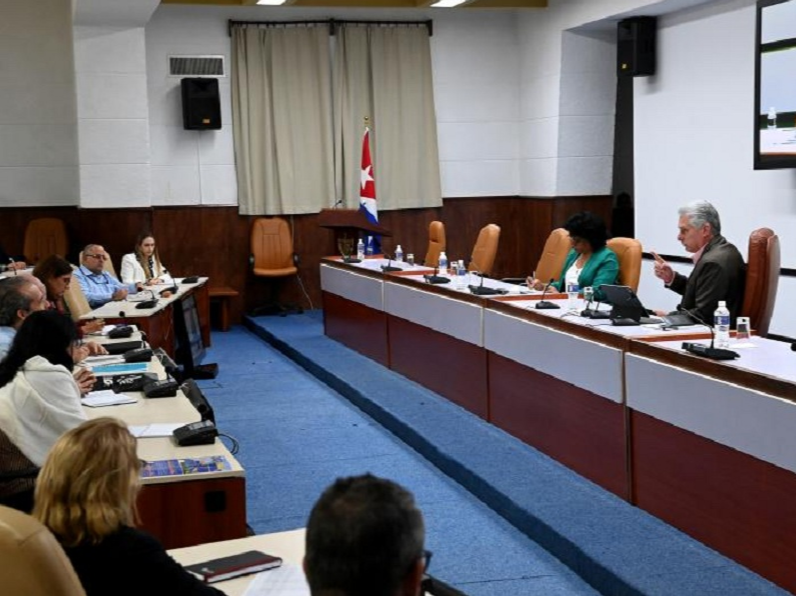Are there artificial intelligence programs and applications in Cuba? What aspects should a Cuban strategy include for the development of technologies that can perform tasks that are characteristic of human capabilities? These two questions were answered at a meeting between members of the Cuban Academy of Sciences and the First Secretary of the Central Committee of the Party and President of the Republic, Miguel Díaz-Canel Bermúdez, held Monday morning at the Palace of the Revolution.
Dr. C Yailé Caballero Mota, President of the Ciego de Avila-Camagüey Branch of the ACC, who presented the topic together with Rafael Bello Pérez, President of the Villa Clara Branch of the ACC, considered that on the Island there is a scientific community with relevant research on artificial intelligence (AI), however this theoretical work is not supported by a productive development.
However, the professor of Computer Engineering said, “Cuba is not starting from scratch” to undertake the development of AI. Several applications have been developed in sectors such as transportation, health, energy, industry, agriculture and security.
The specialist alluded to some recent examples. She mentioned “the multi-objective balancing of primary distribution circuits; optimized routes in stores, technical assurance in tournament calendars; in data analysis there are also Cuban applications for decision making; in border control tasks, in customs, airports, the multibiometric identification platform and video protection systems; we have obtained important results in the application of artificial intelligence in neurodegenerative diseases, mainly in the prediction of walking in patients with ataxia”.
That these examples are not few and multiply towards other socioeconomic activities requires a government strategy, a proposal made to the country’s leadership by the members of the ACC.
After presenting the paper “Artificial intelligence within the digital transformation for development”, Dr. C. Caballero Mota, also a professor at the University of Camagüey; explained in statements to the press, the aspects that she suggested should not be missing in the strategy they propose.
The strategy should contemplate the potential of human resources, should contain all the ethical and legal framework on the use and application of AI, take into account all the macro development programs, the strategic axes and sectors in which AI can play an essential role.
In the exchange, led by the Deputy Prime Minister, Inés María Chapman Waugh, several experts agreed that one of the main limitations is the absence of a legal instrument for the use of data in an open and interoperable manner.
As is customary in these meetings of the Head of State with the Academy, there was debate, note-taking, reflections and consensus. The need to educate the population and leaders on the characteristics of AI and the interest in defining strategic areas that should be prioritized in a strategy, focused the interventions, including those of Dr. C. Aylin Febles Estrada, President of the Union of Computer Scientists of Cuba (UIC) and Dr. C Luis Montero Cabrera, coordinator of the Natural and Exact Sciences section of the ACC.
During Díaz-Canel’s meeting with the ACC, he spoke about ethical data management, potential dangers for the use of AI, alliances through international collaborations, attention to human resources, as well as the strengthening of business systems, in addition to technological infrastructure.
At the conclusion of the meeting with the ACC, President Díaz-Canel -after noting his agreement with each of the assessments- entrusted to work immediately on a Cuban strategy for the development of AI, which should involve those who have worked for years in this field, in addition to the incorporation of jurists and specialists in ethics, economics and Marxism.
The objective – pointed out the First Secretary of the Central Committee of the Party – is for the strategy to be as comprehensive as possible and to respond not only to problems of the productive sector of goods and services, but also to a field that also needs it, that of public administration.
Then, he added, we must work on the interconnections of AI with the productive sector of goods and services, with the field of public administration, and also with the territories; we must address the issue of data organization, data structure, data management, infrastructure issues.


